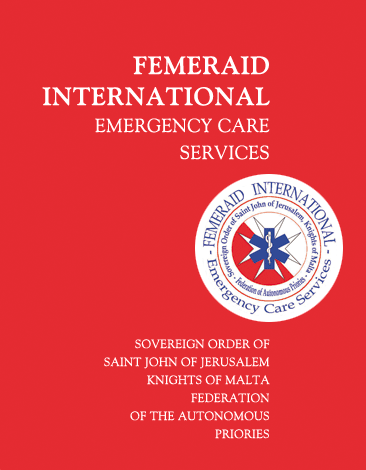The Air Rescue Team of FEMERAID International informs all our members, Knights and Dames of the Sovereign Order of Saint John of Jerusalem, Knights of Malta, Federation of the Autonomous Priories (KMFAP) about the followings:
Certain foods are more likely to cause food poisoning, such as hot dogs, ground beef, unpasteurized cheese, sprouts, raw milk, eggs, raw flour, fresh salads, poultry, pre-cut melons and fresh oysters, in particular during the summer.
• Sprouts, especially clover and alfalfa, have been linked to numerous outbreaks of food poisoning worldwide. Avoid to eat them raw.
• Unpasteurized raw milk can harbour dangerous bacteria such as E. coli, Listeria, Campylobacter and Salmonella, and should not be used.
• Eggs can also contain Salmonella, especially if contaminated during the laying process, so they should always be cooked.
• Pre-cut melons, fresh salads and poultry are common sources of foodborne illness due to bacteria present in the soil, water, and the packaging process.
• Additionally, fresh oysters can carry viruses and bacteria that cause various diseases, making it crucial to cook them before consumption.
• Hot dogs must be thoroughly reheated before consumption to eliminate any potential bacteria.
• Ground beef is a common source of E. coli contamination, often leading to outbreaks of food poisoning. Properly cooking steaks and roasts to an internal temperature of 62°C, and ground beef and pork to 70°C is crucial to preventing E. coli-related illness.
• Consuming unpasteurized cheeses such as queso fresco, feta, brie, camembert and Roquefort carries a significantly higher risk of contracting listeria than pasteurized cheeses. Listeria infection can lead to various symptoms, including headaches, loss of balance and convulsions, and in severe cases can result in complications such as miscarriage, stillbirth or premature birth, and should be avoided by all pregnant women.
In conclusion, it is essential to be cautious when consuming foods known to be at high risk of food poisoning. During the summer months, a lot of people fall victim to food poisoning, resulting in a significant number of hospitalizations. Many of these cases could have been prevented if individuals were more aware of the risks associated with foodborne illnesses.
It is important to note that the symptoms of food poisoning can appear from 20 minutes to 6 days after eating the contaminated food. Although it may seem that the last meal consumed is the culprit, this is not always the case.
31st July 2024
Dr. Nuno Gonçalo Cosmelli
Air Physician
Director of Air Rescue Service
General Secretary of FEMERAID International




